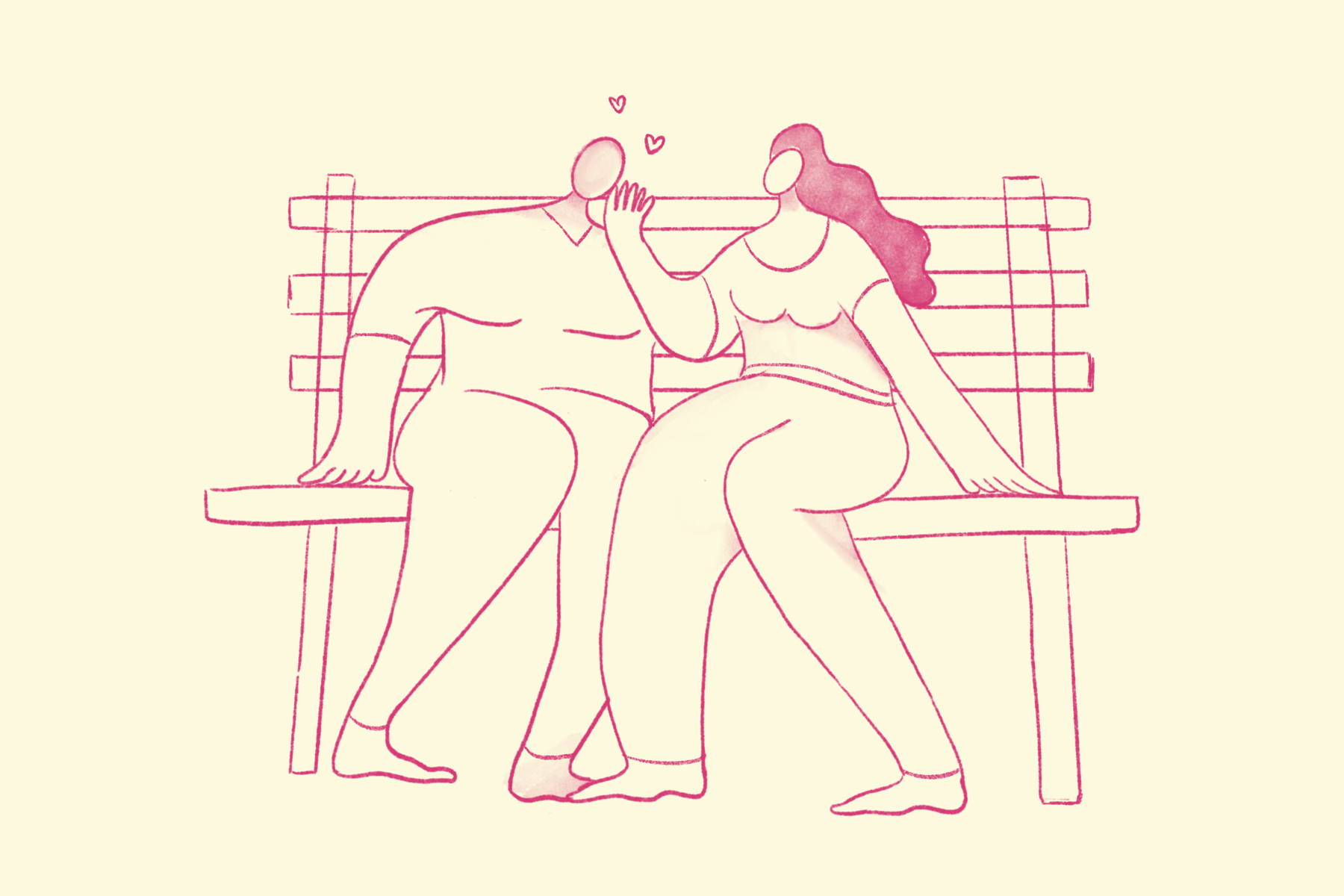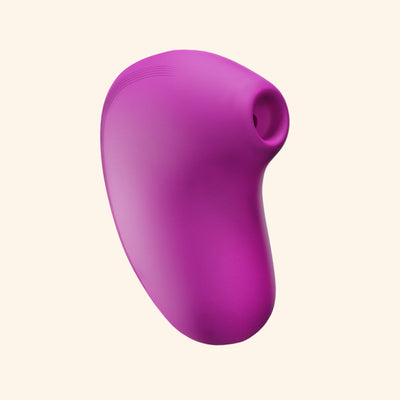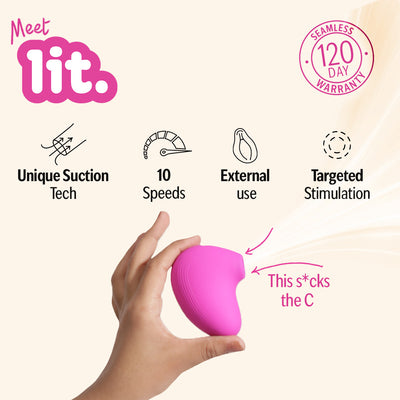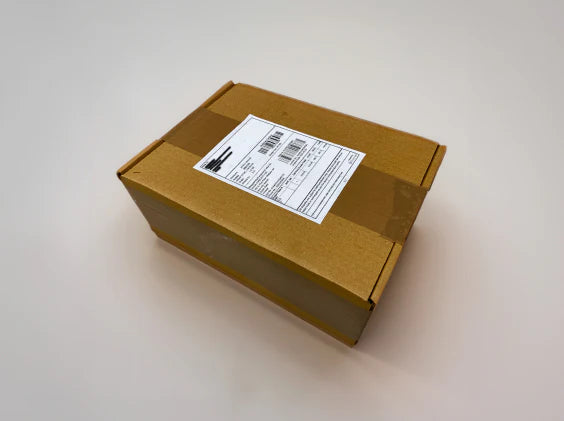Your cart is currently empty

Even the most daring of us desi folk, tend to be cautious when it comes to touch, in public spaces in our society. Most of our public displays of affection (PDA) happen chupke chupke, in secret–in empty corridors, stolen chances in restaurants, trains and theatres when the lights are off, and so on.
And you know I’m not just talking about getting frisky–even holding hands and hugs are dealt with careful consideration. But this policing of affection is just one of the factors (although a big one) that shapes our ways of communicating PDA.

Join us, as we delve into the different factors that influence one’s abilities and desires to indulge in it. We’ve also connected with some wonderful people to understand their own experiences of PDA. Continue reading to know more!
What is PDA?
Since each of us have our various comfort levels and preferences when it comes to touch, let’s begin with broadly defining what PDA is–any form of physical contact between partners in public spaces that is motivated by affection. This can include being physically next to each other, sharing fond eye contact and smiles, holding hands, playing footsie, kissing and more.
It is important for partners to have conversations about what PDA means to them, how much of it they consent to in different public spaces, and how to safely embody it in spaces where it isn’t welcome.
Apart from valuing each other’s consent and safe pleasure practices, it is also key to consider the consent of other people in the physical space you’re in and if they’re comfortable. And while we’re talking about safe pleasure practices, do take a second to check out our water-based lubricant–it’s extra smooth and extra thicc for added pleasure!
How’s the Love Life?
Psychologists say that people who express PDA are generally very much in love. While sometimes couples may demonstrate tenderness in public so that others don’t pick up on issues within the relationship, PDA is mostly a sign that things are going well. The feeling of wanting to ‘shout it from the rooftops’, while being giddy in love, can make doting on your partner in public, be natural illustrations of love that you can’t help but convey.

Taking care to reflect that your boo is important to you, amongst the company of others, can reflect the depth of your relationship and the trust that you share.
Physical touch also promotes the release of love hormone oxytocin, which helps with bonding. And in social situations, a hand squeeze or a shoulder to lean on, can be ways to provide your lover with support and reassurance. Studies show similar associations when it comes to social media–partners who are more satisfied in their relationships, are more likely to “go public” with it.
However, if one expresses more affection on social media than they do in private with their partner, it might be an indication of being in a less satisfying relationship.
How Far Will You Go?
Despite PDA being a big no-no in our society, there are those of us who just can’t keep our hands off each other. For people who rank physical touch as one of their primary love languages, feelings of affirmation may be tied to touch.
And it can be stifling to have to limit even simple touches of endearment to discrete interactions, whether it be with friends or with flames. To indulge in PDA when it is made to be such a taboo, may also excite some of us to push against conventions.
But for others, this surveillance may discourage them from sharing sweet moments in public, even if they desire otherwise.

Furthermore, circumstances like the pandemic can also influence our hesitations around PDA. V, a 24 year old cis man in a relationship, who works as an advocate, talks about his comfort levels with PDA and how it’s changed:
“Before the pandemic, it was easier for me to indulge in PDA, whether that meant holding hands or a kiss on the cheeks. During the pandemic, I was extremely touch starved. And when I went out for my first date, it felt a bit weird–I had had zero contact with anyone for about 1.5 years–and I found it hard to even hold her hand. Initially, I thought this would be temporary. But ever since, I have had my inhibitions with PDA. However, with my current partner, I've been able to be open again to it a little more, and I actually quite enjoy it–a little graze against her butt, or holding her waist.”
M, a cis woman and psychologist, talks about her comfort with PDA as a queer person–
"The comfort for me, depends on the space. In most spaces, I am comfortable holding my partner's hand or giving them a hug, but not beyond that. In queer spaces, I feel more free to be me and I can confidently assert my lesbian identity and that I have a queer partner. The hesitation comes up in spaces that aren’t queer affirmative, and anywhere where I sense the inappropriate male gaze. In these situations, I feel uncomfortable because I know that any display of affection is going to be fetishised.”
While being passionate in public can be a puzzle, make sure you get your private games in the bedroom all sorted out! Our full body massager LIT, is well versed in cliterature and is a must-have, with its suction technology designed to blow your mind.
Conflicts Within the Culture
Trigger warning: sexual harassment
It’s been established far too often that Indian society seldom takes getting touchy-feely in public light-heartedly. Popular hangout spots like parks release notices prohibiting PDA.
There’s been far too many cases of partners being illegally filmed in metros while kissing, holding hands and cuddling. When it comes to the legal context, people are charged for PDA on the grounds of obscenity. However, there is a lack of consistency regarding when PDA becomes obscene, and legal judgements are often influenced by personal convictions–which can often vary.
Ironically, our cultural treasures point to many depictions of PDA. From wall paintings of lovers canoodling in gardens at the Ajanta, to sculptures of men and women naughtily playing water games together during Holi at the Belur Chennakesava Temple, in Karnataka, to Mughal miniatures of courtly dalliances–we see an abundance of inhibition free romance in the public eye, portrayed in Indian art.
And our films are notorious for grand public declarations of love between heroes and heroines in all kinds of spaces, including mustard fields, train stations, airports, and forts.
All of these different attitudes shape our own approaches to PDA. T, who’s a 23 year-old cis-woman and artist, talks about their own reservations around touching in public.
“I think in India, culturally, physical intimacy is just not taken well. I have never seen my parents kiss each other, so it's not a shocker for me when I notice people looking at me and my cis male partner holding each other close, as if it's a crime. If I were to sit with a girl and kiss her in a public space, you can imagine the look on people's faces.”
S, is a cis woman who’s 29, a graphic artist, and a full-time wheelchair user. She shares how cultural notions of disability have influenced her experiences of PDA:
“While I’ve been fortunate to access dating spaces like disabled-friendly restaurants and partake in PDA like holding hands, I often get looked at when I’m on a date, with people wondering what’s going on. But most of the time, they assume that my date is a brother or a relative who’s assisting me, since people do not think of disabled people as having love lives. This one time I was making out with a date in a car during night time in an empty street, when a person in a car came up next to us and asked us to stop. However, this time the person wasn’t aware of my disability since they could not see signs of it."
Who is Allowed PDA?
While it is good practice to consider the consent of those around us when getting physical, it becomes complicated when we belong to groups that are marginalised by society. There’s always a stronger reaction to PDA, when partners involved belong to different castes, different religions, or are queer, polyamorous, or disabled.
These reactions may be expressed as shaming of touch expressed within these communities–studies show that straight people are more uncomfortable with queer PDA–or as unwarranted protection against affectionate and consensual touch. V, who is a student and 25 years old, explains:
“Once people know you have a psychosocial disability, they look at you and your romantic relationships with a certain gaze–which often feels controlling and claustrophobic. People who know I have a history of psychiatric hospitalisation, have always been keeping a guard over me. And this has discouraged me from expressing PDA and socialising in general.”
However, these attitudes also make each instance of PDA expressed by groups that are marginalised, an act of political resistance. By engaging in PDA, we communicate to the world that our love exists and that there’s nothing shameful about it.
And baby, you know Aunt Sassy’s all about being shameless. Peep a look at our adult products collection, and you’ll know we’ve got your pleasure on priority.

Understanding our own feelings around PDA, and spaces that make us comfortable and those that do not, can tell us a lot about the ways that society talks about pleasure. How ever you choose to show your love in public is entirely up to you and your partner(s). Whether you’re someone who finds security in holding back, or you enjoy pushing the boundaries of what’s “acceptable”, we wish you the best of pleasure.
-----
About the Author










